This book was a light, pleasant read. Young Beatrice is staying with her sister (Ariana) and Ariana’s husband Philip, and their children. Ariana’s and Philip’s story was told in Linore’s earlier book. Beatrice wants to find a husband – a rich husband. However, she finds herself being wooed by two different men. Unbeknownst to Beatrice, Tristan, a man living near Philip’s property, is really a scoundrel (he gambles and is not very nice to women.) He’s lost his reputation and now he and his unwed pregnant sister have little material possessions since he’s gambled away their wealth. She finds herself smitten with the curate, Mr. O’Brien, but knows he would not be a good match because he’s not wealthy!
This story also tells of how sickness affects the people of the time. There’s an epidemic going around, and the commoners don’t want others to know when the sickness affects those in their homes – they may be forced out of work if people realize that they’ve been exposed to a contagious disease. The sickness has claimed lives, and the lower class has little means to treat the illness – they can’t always afford doctors, and they have to rely on the opothecary’s remedies and those remedies don’t always work. I found this a highly emotional thread within the story.
If you like regencies, then you should give this one a try.
***Special thanks to Linore Rose Burkard and Dave Bartlett (Harvest House Publishers) for sending me a review copy.***
London, England, 1818
Mr. Peter O’Brien felt surely he had a devil plaguing him, and the devil’s name was Mr. Phillip Mornay. The paper in his hand should have made him happy. Indeed, it ought to have elicited nothing but joy after two years of holding a curacy that didn’t pay enough to feed a church-mouse. Yet, instead he was staring ahead after reading a letter of recommendation for him as though he’d seen a ghost.
His previous naval commander, Colonel Sotheby, had recommended Mr. O’Brien to a wealthy landowner whose vicarage had gone vacant. It was the sort of letter that a poor Curate should rejoice over. The man who obtained the vicarage in the parish of Glendover, the Colonel said, in addition to having a decent curate’s salary, would have claim to a large glebe, a generous and well built house, and, in short, would see himself by way of having enough to begin a family. (If he found a wife to marry, first, of course. O’Brien could just hear the Colonel’s good-natured laugh ring out at that remark.)
But still his own mouth was set in an unpromising hard line: The landowner’s name was Mr. Phillip Mornay, none other than the Paragon, himself. And Mornay, Mr. O’Brien knew, would never grant him the living. To do so would go against everything he knew to be true of him. After all, no man who had once overstepped his bounds with Mr. Mornay’s betrothed, as Mr. O’Brien unfortunately had, would now be presented to the vicarage on the man’s lands. Of all the rotten, devilish luck! To have such a letter of commendation was like gold in the fiercely competitive world of the church, where there were more poor curates looking for a rise in their situations than there were church parishes who could supply them.
Therefore, instead of the boon from heaven this letter ought to have been, Mr. O’Brien was struck with a gloomy assurance that Mornay would sooner accept a popinjay in cleric’s clothing than himself. Even worse, his mother agreed with his appraisal.
He had taken the letter into the morning room of their house on Blandford Street, joining his mother while she sat at her breakfast.
“You do not wish to renew old grievances,” she said. “Mr. Mornay is not, to my knowledge, a forgiving man; shall you be put to the expense and trouble of travelling all the way to Middlesex, only to be turned down in the end? What can you possibly gain in it?”
Mr. O’Brien nodded; he saw her point. But he said, “I may have to do just that. The Colonel will never recommend me for another parish if he learns that I failed to apply myself to this opportunity.”
“Write to him,” replied his mama. “See if you can politely decline this honour, with the understanding that any other offer should be most welcome and appreciated!”
He doubted that any letter , no matter how ‘politely’ written, would be able to manage his desire to avoid this meeting with Mornay, as well as secure the hope of a future recommendation. But he thought about it, put quill to paper and sent the Colonel a reply. He asked (in the humblest terms he could manage) if the man might commend him for a living to be presented by some other landowner, indeed, any other landowner, any other gentleman in England than Phillip Mornay.
He could not explain the full extent of his past doings with Mr. Mornay without making himself sound like an utter fool; how he had hoped to marry the present Mrs. Mornay himself, some years ago. How presumptuous his hopes seemed to him now! Miss Ariana Forsythe was magnificent as the wife of the Paragon. He’d seen them in town after the marriage, but without ever presenting himself before her. It appalled even him that he had once thought himself worthy or equal to that beautiful lady.
When the Colonel’s reply came, there was little surprise in it. He assured Mr. O’Brien that his apprehensions were ill-placed; that Mr. Mornay’s past reputation of being a harsh, irascible man was no longer to the purpose. Colonel Sotheby himself held Mornay in the greatest respect, and insisted that the Paragon had as good a heart as any Christian. In short, (and he made this terribly clear) Mr. O’Brien had best get himself off to Middlesex or he would put the Colonel in a deuced uncomfortable spot. He had already written to Aspindon House, which meant that Mr. O’Brien was expected. If he failed to appear for an interview, he could not expect that another recommendation of such merit and generosity would ever come his way again.
Mr. O’Brien realized it was inevitable: he would have to go to Middlesex and present himself to Mornay. He knew it was a vain cause, that nothing but humiliation could come of it, but he bowed to what he must consider the will of God. He knelt in prayer, begging to be excused from this doomed interview, but his heart and conscience told him he must to it. If he was to face humiliation, had he not brought it upon himself? Had he not earned Mornay’s disregard, with his former obsession with Miss Forsythe, who was now Mrs. Mornay?
He no longer had feelings for the lady, but it was sure to be blesséd awkward to face her! No less so than her husband. Nevertheless, when he rose from his knees, Peter O’Brien felt equal to doing what both duty and honour required. He only hoped that Mr. Mornay had not already written his own letter of objections to the Colonel; telling him why he would never present the living to Peter O’Brien. The Colonel was his best hope for a way out of St. Pancras . It was a gritty, desperate parish with poverty, crime, and hopelessness aplenty—not the sort of place he hoped to spend his life in, for he wanted a family. A wife.
Prepared to face the interview come what may, Mr. O’Brien determined not to allow Mornay to make quick work of him. He was no longer the youthful swain, besotted over a Miss Forsythe. A stint in the Army, if nothing else, had hardened him, brought him face to face with deep issues of life, and left him, or so he thought, a better man.
******
Aspindon House, Glendover, Middlesex
Ariana Mornay looked for the hundredth time at her younger sister Beatrice, sitting across from her in the elegantly cozy morning room of her country estate, Aspindon. Here in the daylight, Beatrice’s transformation from child to warm and attractive young woman was fully evident . When Mrs. Forsythe and Beatrice had arrived the prior evening, Ariana had seen the change in her sister, of course, but the daylight revealed it in a clarity that neither last night’s flambeaux (lit in honour of their arrival) or the interior candlelight and fire of the drawing room had been able to offer.
Beatrice’s previously brown hair was now a lovely luminous russet. Ringlets peeked out from a morning cap with ruffled lace, hanging over her brow and hovering about the sides of her face. The reddish brown of her locks emphasized hazel-green eyes, smallish mischievous lips and a healthy glow in her cheeks. Beatrice noticed her elder sister was studying her, and smiled.
“You still look at me as if you know me not,” she said, not hiding how much it pleased her to find herself an object of admiration.
“I cannot comprehend how greatly you are altered, in just one year!”
“I regret that we did not come for so long,” put in Mrs. Forsythe, the girls’ mother. She was still feasting her eyes upon Ariana and the children (though the nurse, Mrs. Perler, had taken four year old Nigel, the Mornay’s firstborn, from the room, after he had spilled a glass of milk all over himself minutes ago). “We wished to come sooner, as you know, but Lucy took ill, and I dared not carry the sickness here to you with your new little baby.” At this, she stopped and cooed to the infant, who was upon her lap at the moment.”No, no, no,” she said, in the exaggerated tone that people use when addressing babies, “we can’t have little Miranda getting sick, now can we?”
Ariana smiled. “It matters not, mama. You are here, now. I only wish Papa and Lucy could have joined you.” Lucy, the youngest Forsythe sister, and Papa, had been obliged to stay home until the spring planting had been seen to. Mr. Forsythe did not wish to be wholly bereft of his family, so Lucy, who was a great comfort to him, had been enjoined to remain in Chesterton for his sake.
“I could not bear to wait upon your father a day longer,” she answered with a little smile. “They will come by post chaise after papa has done his service through Easter. And then we will all be together–except for the Norledges. Perhaps when Papa comes, he may bring your older sister and her husband?”
“I would want Aunt Pellham too, in that case,” murmured the blond-haired young woman.
“Oh, my! With your Aunt and Uncle Pellham, and the Norledges, even this large house would be filled with guests, I daresay!” said her mother.
Beatrice was still happily ingesting the thought that Ariana had evidently noticed her womanhood. At seventeen, hers was not a striking sort of beauty—one did not stop in instant admiration upon spying Beatrice in a room, for instance, as had often been the case for Ariana; but the younger girl had no lack of wits, a lively eye and countenance, and, not to be understated, an easy friendliness. Among a group of reserved and proper English young ladies, Beatrice would be the beacon of refuge for the timid; she was welcoming where others were aloof; inquisitive and protective where others looked away.
Nor was she the sort of young woman to glide across a floor, dignified and elegant. Instead, Beatrice was ever having to keep her energy in check; When rising from a chair (her mama had made her practice doing so countless times) she could appear as elegant as the next young woman. She ate nicely, even daintily. But left unchecked, her natural enthusiasm might propel her through a room with alarming speed. Her shawls were ever hanging from her arms, never staying in place over her shoulder; and her mother forbade her from wearing hair jewellery, as it tended to lose its place upon her head. Bandeaux were her lot; besides bonnets, of course.
“It is fortunate that I am only seventeen,” she had said to her mama only last week, while the woman was draping a wide bandeau artfully around Beatrice’s head. “Or I believe you would exile every manner of female head attire from this house, saving turbans! Although my hair holds a curl twice as long as Lucy’s!”
Mrs. Forsythe had paused from her ministrations and met her daughter’s eyes in the looking glass before them. “I daresay you are suited for turbans; perhaps we should shop for some. I believe they are very popular just now.” Since the last thing in the world Beatrice wished to wear upon her head was a turban—no matter how many ladies in the pages of La Belle Assemblée wore them—she simply gave voice to an exasperated huff, evoking a knowing smile upon her mama’s face.
“I should adore a full house of guests,” she said, now. “Please do invite the Norledges’ Ariana! Only think of the diversions we could have; play-acting with enough people to fill all the roles, for a change! Or charades; or even a dance!”
Ariana looked at her sister fondly. “Which dances do you like best?”
“The waltz!” she quickly responded, with a smile to show that she knew it was mischievous to prefer the waltz—the single dance which entailed more contact with the opposite sex than any other ballroom fare. Mrs. Forsythe clucked her tongue, but Beatrice blithely ignored this, taking a peek at her brother-in-law to gauge his reaction, instead. The host of the gathering was reading his morning paper, however, and not listening to the small talk between his wife and her relations.
And relations were virtually all around him. In addition to Beatrice and Mrs. Forsythe, there was his aunt, Mrs. Royleforst, staying with them at the present, and her companion, skinny, nervous Miss Bluford. These two ladies had not appeared yet for breakfast, which was probably on account of Mrs. Royleforst. She found mornings difficult and either slept in, or took a tray in her room.
“What do you think, sir?” asked Mrs. Forsythe, of her host. “Shall my daughter invite the Norledges to join Mr. Forsythe and Lucy when they set out for your house? Or is your home already filled enough for your liking?”
Mr. Mornay looked over his paper enough to acknowledge that he had heard her question. “As it is your and my wife’s family, I think the two of you must decide upon it. As long as there are bed-chambers enough,” he added, looking at Ariana, “you may fill them with guests as you please.”
“Thank you, darling,” she said, making Beatrice stifle a titter. Her sister and her husband were still inordinately romantic, to her mind. Good thing no one else was present save her mother! She would have been embarrassed for them in company.
“Shall I take the baby, mama?” said Ariana, for Miranda was beginning to fuss.
“I suppose she wants to be fed,” agreed her mother. Ariana nodded to a maid who was seated against the wall, who went and received the child from her grandmother and brought her gingerly to her mama. Ariana’s eyes sparkled with happiness as she took her little girl. She murmured to the baby, by turns picking her up and kissing her face, and then just holding her in her arms and gazing at her in loving adoration. “I shan’t feed her yet,” she said. “She isn’t insisting upon it.”
Beatrice’s thoughts were still upon the diversions that would be possible with a large group staying at the house. “If they all come, can you and Mr. Mornay hold a ball, Ariana? Or, will you take me to London this year for the Season? Then I may go to as many balls as I like, and you will not have the expense of holding them!”
“If she takes you to London for the Season,” put in her mama, “she will have a great deal more expense than just that of a ball! Besides which, you are too young for such.”
Beatrice looked at her mama, her enthusiasm temporarily dampened. “But my sister sees I am older, now,” she said, looking at Ariana with a silent plea in her gaze. “And I am not too young for a Season, according to the magazines. Many girls my age do have their coming out, mama!”
“Many gels,” she returned, instantly, “have little sense, and their parents, no better; your papa and I did not allow either of your sisters to go about in society at your age. You have been already too pampered, if you ask me. London society is out of the question!”
Beatrice was now thoroughly dampened in her spirits, but she looked about and settled her eyes upon her brother-in-law. “I daresay Mr. Mornay has seen many a girl of my age–and younger—make their debut during the Season. And to no ill effect! Why, I am sure some of them have made the most brilliant matches! Many a man of good standing prefers a younger lady for his wife. You had ought to let me go while I am young enough to enjoy this advantage.”
Mr. Mornay was frowning behind his newspaper. He knew that his young relation wanted his support in the matter, but Mr. Mornay was assuredly not in the habit of coming to the aid of young women, particularly regarding a London Season. So he said nothing, though an ensuing silence in the room told him the ladies waited for his opinion.
Ariana, who knew better, offered, “Let us discuss it another time. There are months, yet, before the Season. And with Miranda so young, I cannot decide at this point, in any case.”
Beatrice, who had no idea she was treading on dangerous ground, said, “Only let Mr. Mornay tell us his thoughts! I know my mother will listen if you tell her, sir,” she said, directly to him.
He put his paper down reluctantly, and then looked at Beatrice. “I think Ariana was young to face society at nineteen. At your age, you need to be sheltered, not put forth among the wolves.”
Her face fell so entirely, that he almost chuckled at it. “Why are you so eager for a Season?”
She smiled a little. This was better; he was inviting her to explain so that her mother could see the good advantage in it. “I have long lived with the memory of my sister’s tales of her experiences in London;” she said. “She met you there! Her coming out is what brought her to marriage, to Aspindon, to a better life! I have had my fill of Chesterton, I assure you! The prospects for marrying well in that region are as dismal as ever, if not worse;” she said. (Ariana closed her eyes at this; she could hardly bear to hear her sister telling all the reasons Phillip would most despise.) “Why does it seem that all the eligible young men in the county are either in a regiment somewhere, or at sea, or in need of a fortune? I must go to London or Bath, where there are more men one can meet!”
She paused, looking at him earnestly. “I have no fortune, sir, as you are well aware. And with your connexions, I am certain to make very advantageous acquaintances! What could be more certain? I shall end up, no doubt, just as my sister has, with a man like you, sir!” Beatrice evidently thought she was giving him a great compliment. She waited, expecting a gracious answer.
“Oh, Beatrice!” moaned Mrs. Forsythe. “You foolish gel!”
Mr. Mornay stood up, after folding his paper to a neat size. He said, “It takes more than wearing a corset to say a young lady is grown up, would you not agree?” He directed his remark to the whole room, and then settled his eyes upon Beatrice for one second too long, before giving a small bow to the women in general, and turning to leave the room. Beatrice considered his words for a moment. He had rested his eyes on her long enough so that she knew exactly what he meant.
Mr. Frederick met his master at the door, holding out a salver with a letter for Mr. Mornay, who took it but then looked curiously at the butler.
“It arrived in that condition, sir! I daresay it was lost in the mail or some such thing.”
“Hmm, very good, Freddie.” He held up a battered and ink-soiled missive for his wife to see, while eyeing it dubiously.
She looked amused. “Who is it from?”
He unfolded the paper, as the sealing wax was almost entirely worn off already, and scanned the signature at the bottom. “Colonel Sotheby. I’ll read it in my office.” She nodded, and Mr. Mornay left the room.
Beatrice was still smarting from his earlier remark, and said, as soon as he’d gone, “How ‘grown up’ can I be, when I am forced to exist in a small country village, with no prospects, and genteel company only upon a Sunday?”
“You overstate your case! That is not true,” answered her mama, disapprovingly.
“And as for wearing a corset,” Beatrice continued, after taking a sip of tea, “I do not pretend that wearing one is what makes me of age for a Season. I have formed my principles upon sound reason. I have sat beneath the tutelage of my father and of Mr. Timmons, and of his curate, and I should say my principles are well-founded.”
“We are glad to hear it,” Ariana said, with great forbearance, “but really, you should not be setting your mind upon seeking a man like my husband; you should be intent upon finding the man that God has chosen for you.”
“And so I am!” she protested, her eyes wide and laughing. “But look at the advantage He gives me in having you for my sister! Am I to ignore that? When it could be the very means of bringing me and my future husband together?”
Ariana played absently with little Miranda’s blanket, tucking it in about her chin more snugly. She met her sister’s eyes. “London is not the only place a young woman may meet a husband. And if you want my husband’s approval of your plan, the last thing in the world you should tell him is that you want to meet a man like him! Or that you wish to marry above you in any way!”
“But is it above me? To marry well? When my sister is Mrs. Mornay of Aspindon House?”
“It is above you,” said her mother, “because you are Miss Forsythe of Chesterton.”
“I am a gentleman’s daughter,” she replied.
“With no dowry to speak of,” said her mama.
Beatrice’s cheeks began to burn. “With a rich and famous brother-in-law!” she said, petulantly.
“That does not signify!” said her mother.
“It does, to me!”
“It should not!” Mrs. Forsythe was quickly growing ashamed of her daughter, and she was relieved that Mr. Mornay had left the room, and was not hearing Beatrice right now. Ariana’s eyebrows were raised and she was doing her best to act as though she had no part in the dialogue.
“But it does, mama!”
“Beatrice! You have already said far too much on this topic, which proves to me your great ignorance of the world.” She held up her hand for silence as Beatrice was about to protest; “Not another word! I shan’t have it, not another word.” Mrs. Forsythe turned her attention to her elder daughter.
“I think I will visit the Nursery to see how Nigel is faring. Do you mind?”
“Of course not! He will enjoy showing you his toys.” She smiled, while her mother rose to leave the room. “I’ll be up myself, shortly, to feed the baby.”
“Very good.” She nodded to her daughter, and then her eye fell upon Beatrice. “I think it would be wise if you said nothing more regarding a Season. In fact, I forbid you to mention it to Mr. Mornay again! Do you understand me?”
“I do, mama.” Beatrice was not happy but she recognized the tone of voice her mother was using. She considered, moreover, that it would be a simple matter to keep from mentioning her hopes to the man, for he evidently would not encourage her in them. But as for herself, she would continue to think of the Season in London. She would continue to hope; and some other day, when Ariana was in a good disposition, she would prevail upon her to sponsor her in London.
Beatrice did not want to seem disrespectful, but she knew that Mr. Mornay was quite in error regarding her. He did not know, for instance, that she was determined to make a good match, and recognized it as her lot in life. Every inch she saw of Aspindon just confirmed her sense that a rich life awaited her. She was born for it. And now all that was necessary was to meet her future husband—the man who could make it all happen. She had long prayed for just such a meeting, and knew that it was bound to occur. All she had to do was be properly outfitted, and in the proper company, for it to do so.
All she had to do was change her sister and brother-in-law’s mind on the matter. How difficult could that be?
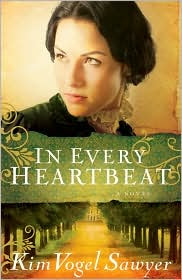








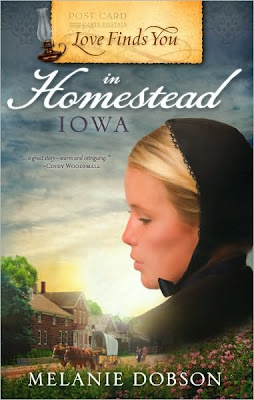

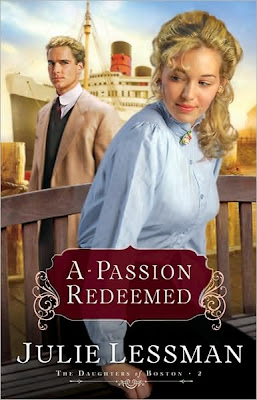
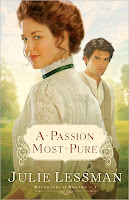

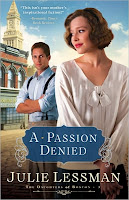


.jpg)